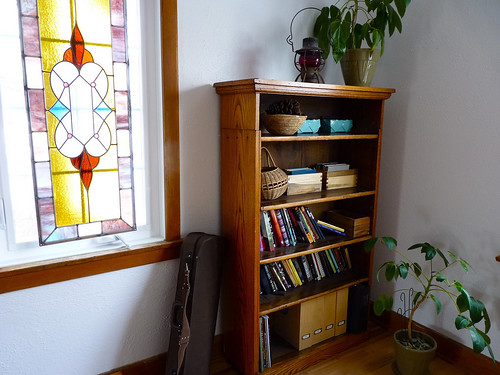Moving into a new home is a lot like editing a manuscript: you need to achieve a total clarity about your goals, so you can figure out what to let go and what to keep.
A few years ago, I made a pass at revising an old story I’d written, and I kept too much. There were so many passages I’d fallen in love with, and I couldn’t just hit the delete button, even though I knew I probably should. The result? My revision was pretty half-assed, and the story languished.
I’ve gotten more ruthless over the years, and I like to think that if I ever returned to that story again, it would totally see my fangs. I’d ditch the bloated exposition. I’d ruthlessly shred those dragging scenes. And for once, I’d make my narrator shut up.
When you get too close to something (whether it’s a piece of writing or a pair of boots), you become sentimental and attached, and then you can’t (or won’t) answer the really big questions: Why am I keeping this? What’s it doing for me?
Writers need to ask themselves those questions all the time.
In terms of my looming cross-country move, I’m staying true to my goal, which is to create a meaningful and useful home. The house in Wisconsin is almost empty these days, and only 10 pieces of furniture are coming to Colorado.
I’m keeping my grandmother’s oak bookcase. This beat-up old shelf, which long ago had its top sawed off in order to fit in an attic room, is one of my greatest treasures. I will never part with this piece, for it’s the only thing my grandmother gave me when she was still herself. I was 22 at the time, about to leave for Madison to start my Ph.D. My grandmother took me down the narrow stairs into her basement, and she showed me this bookcase, its shelves stacked with jars of homemade applesauce, cooked cherries, and green beans.
